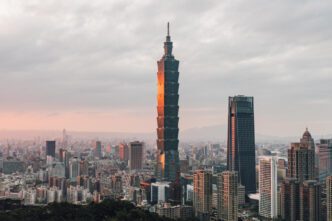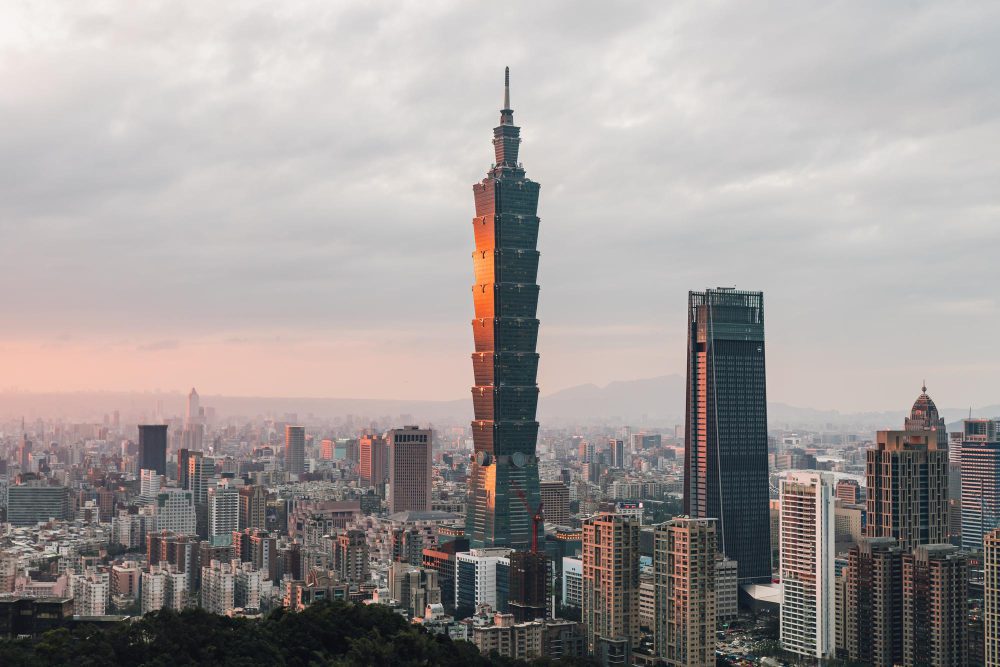Executive Summary
The Story So Far
Why This Matters
Who Thinks What?
The de facto U.S. embassy in Taipei has accused China of intentionally mischaracterizing World War Two-era documents, asserting that Beijing is using these agreements to pressure and isolate Taiwan. The American Institute in Taiwan (AIT) stated that these historical documents did not determine the island’s ultimate political status, directly challenging China’s claims of sovereignty over Taiwan. This intervention comes amidst a bitter dispute between Taipei and Beijing regarding the war’s historical meaning and its relevance today, coinciding with the 80th anniversary of its end.
Historical Interpretations at Odds
The Beijing government maintains that documents such as the Cairo Declaration and Potsdam Proclamation legally support its claims of sovereignty over Taiwan. It cites wording in these agreements stating that Taiwan, then a Japanese colony, was to be “restored” to Chinese rule.
However, Taiwan’s government argues that the Chinese government referred to in these agreements was the Republic of China (ROC), which subsequently fled to Taiwan in 1949 after losing a civil war to Mao Zedong’s communists. The ROC remains Taiwan’s formal name, and its government contends that no World War Two agreements mentioned Mao’s People’s Republic of China (PRC) because it did not exist then, thus invalidating Beijing’s current claims.
U.S. Rebuttal and Context
In a statement emailed to Reuters, the AIT specifically named the Cairo Declaration, the Potsdam Proclamation, and the Treaty of San Francisco as documents China intentionally mischaracterizes. The institute asserted that “Beijing’s narratives are simply false, and none of these documents determined Taiwan’s ultimate political status.”
The 1951 San Francisco Peace Treaty, signed by Japan, renounced its claims to Taiwan but left the island’s sovereignty unresolved. Beijing, not a party to this treaty, deems it “illegal and invalid.”
Despite ending official ties with Taipei in 1979 to recognize Beijing, the United States remains Taiwan’s most significant international supporter. Washington adheres to a “one China policy,” which officially acknowledges Beijing’s position on Taiwan’s sovereignty without taking its own definitive stance.
The AIT further characterized Beijing’s “false legal narratives” as part of a broader campaign. This campaign, according to the institute, aims to isolate Taiwan from the international community and restrict the sovereign choices of other countries regarding their interactions with the island.
Reactions and Anniversary Commemoration
China’s foreign ministry did not immediately respond to a request for comment regarding the AIT’s statement. Earlier in September, Chinese President Xi Jinping oversaw a large military parade in Beijing to mark the war anniversary.
Taiwanese Foreign Minister Lin Chia-lung expressed gratitude for the U.S. mission’s statement. Lin reiterated Taiwan’s position, stating, “Our country and the People’s Republic of China are not subordinate to each other, and the People’s Republic of China has no right to represent Taiwan in the international community.”








